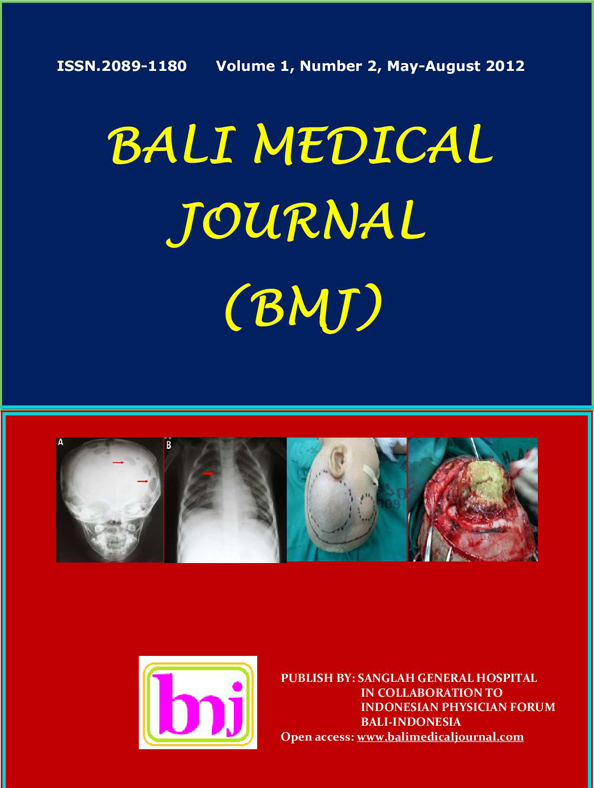Correlation Between Full Outline Unresponsiveness Score and Glasgow Coma Scale for Severe Head Injury Patients at Prof. dr. R. D. Kandou General Hospital, Manado-Indonesia
Abstract
Objective: Glasgow Coma Scale (GCS) has been widely used to assess level of consciousness related to trauma, however, its use have a limitation especially in intubated patients. Full Outline Unresponsiveness Score (FOUR) consists of four components (eye, motor, brainstem, and respiration) and each component has a maximal score of 4 and total score 17. This study aims to evaluate correlation between FOUR score and GCS to evaluate level of consciousness in severe head injury patients. Methods: This is a prospective study with correlation approach. We prospectively studied all severe head injury patients at surgical emergency department Kandou Hospital, Manado from March to May 2010. Level of consciousness was assessed using GCS and FOUR score. Data were analysed with Pearson correlation coefficient. Results: From March to May 2010 at surgical emergency department there were 27 severe head injury patients (24 males and 3 females) with average range of age 10-20 years old (29,6%). The highest distribution of GCS in severe head injury patients were GCS 8 (33.3%) and GCS 3 (22.2%) while in FOUR score were 8 (33.3%) and 7 (14.8%). Conclusions: we concluded that FOUR score can be used as important tools to assess level of consciousness of severe head injury patents. FOUR score provides greater neurological detail than GCS which can assess brainstem reflexes, breathing pattern, and herniation.


